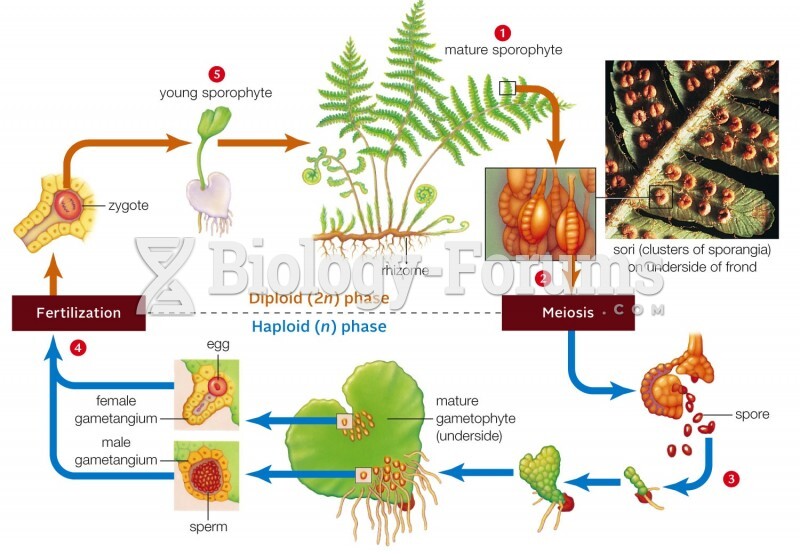|
|
|
Automated pill dispensing systems have alarms to alert patients when the correct dosing time has arrived. Most systems work with many varieties of medications, so patients who are taking a variety of drugs can still be in control of their dose regimen.
Studies show that systolic blood pressure can be significantly lowered by taking statins. In fact, the higher the patient's baseline blood pressure, the greater the effect of statins on his or her blood pressure.
The largest baby ever born weighed more than 23 pounds but died just 11 hours after his birth in 1879. The largest surviving baby was born in October 2009 in Sumatra, Indonesia, and weighed an astounding 19.2 pounds at birth.
The immune system needs 9.5 hours of sleep in total darkness to recharge completely.
Your heart beats over 36 million times a year.
 HIV-positive men with a high number of life stressors progress more quickly to AIDS than those with ...
HIV-positive men with a high number of life stressors progress more quickly to AIDS than those with ...
 For Gulf War veterans, lack of social support in the field is related to postwar depression. The ...
For Gulf War veterans, lack of social support in the field is related to postwar depression. The ...





